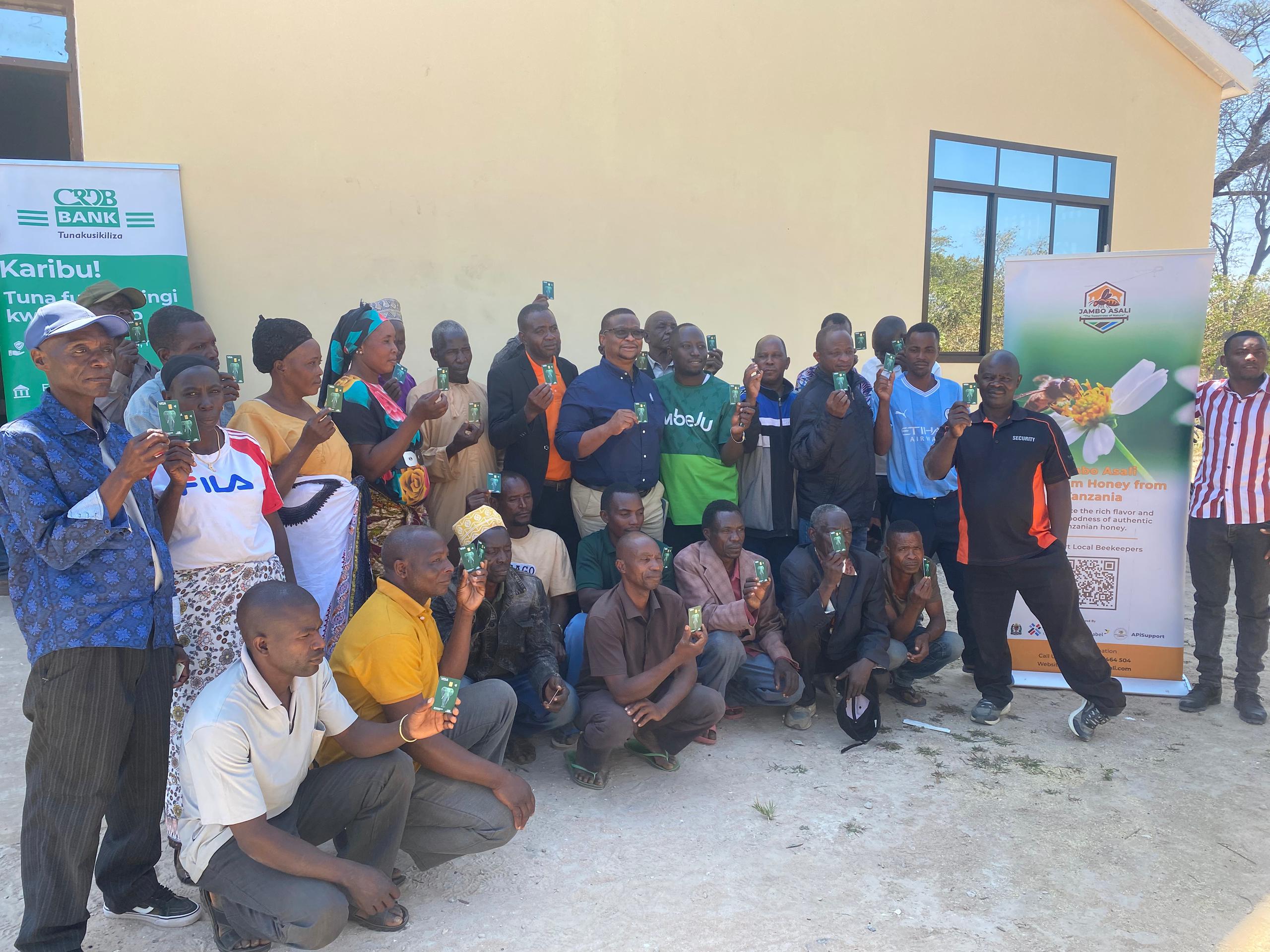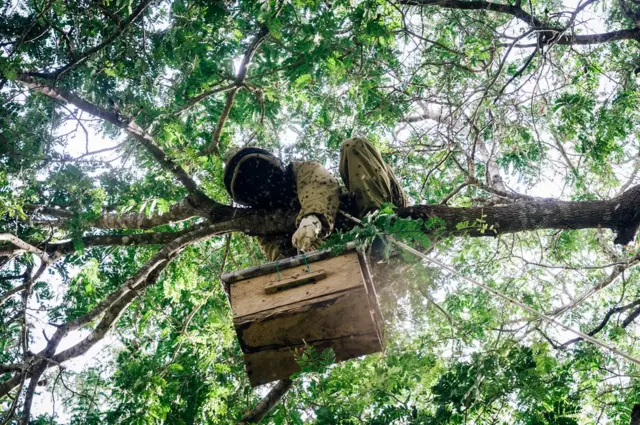
In the heartlands of Tabora, where beekeeping is not just a tradition but a lifeline, access to financial services has long remained a distant dream for many smallholder beekeepers. Today, however, that narrative is beginning to change, thanks to a transformative initiative led by the BEVAC Project under Enabel and ITC and CRDB Bank through the IMBEJU Program.
Recently, a team from Jambo Asali organized a field mission to visit its network of outgrowers in remote villages across Tabora. The visit aimed not only to assess the progress of honey production but also to connect beekeeping groups with essential financial services. For many, it was their first-ever encounter with formal banking.
The demand for these services was immediate and overwhelming. With the support of the CRDB team, several outgrower groups successfully opened bank accounts a critical step toward economic inclusion. For beekeepers who have long relied on informal savings and inconsistent market access, this breakthrough marks the beginning of a more empowered and stable financial future.
This success is a direct outcome of the BEVAC Project, which has been instrumental in mobilizing partners, coordinating field outreach, and ensuring the integration of rural communities into the broader economic framework. One of the highlights of the recent visit was the participation of Mr. Stephen Magige, BEVAC Project Manager from Enabel, who personally attended the session. Recognizing the need to reach even more groups that had not yet accessed the services, Mr. Magige announced that the financial inclusion campaign would continue on 11th August 2025, in tandem with the grand opening of Honey Collection Centres in Tabora. The event will be officiated by the Regional Commissioner of Tabora and marks a major milestone in the region’s beekeeping development.
Jambo Asali is continuing to coordinate all its outgrowers across Tabora, Kigoma, and Katavi regions to ensure no one is left behind. With improved access to banking, beekeepers are now better positioned to invest in their production, save securely, and participate more competitively in both local and international markets.
This initiative is a clear demonstration of how strategic partnerships and grassroots coordination can unlock real economic empowerment. It is also a testament to Jambo Asali’s mission of transforming the honey value chain not just by producing high-quality honey, but by enabling the people behind the product to thrive financially and socially.
As the countdown to the August 11 launch begins, the beekeeping communities of western Tanzania are already witnessing the early fruits of inclusion, empowerment, and sustainable development.


